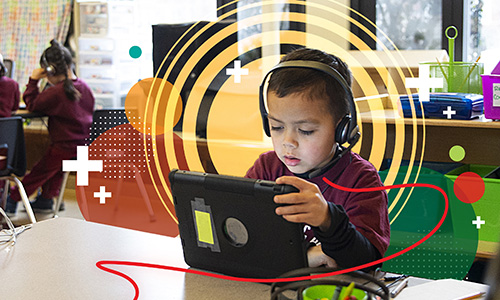Journal article
It matters how you start: Early numeracy mastery predicts high school math course-taking and college attendance
2021
Infant and Child Development. https://doi.org/10.1002/icd.2281
By: Pamela Davis-Kean, Thurston Domina, Megan Kuhfeld, Alexa Ellis, Elizabeth Gershoff

Abstract
Using data from the Applied Problems subtest of the Woodcock-Johnson Tests of Achievement (Woodcock & Johnson, 1989/1990, Woodcock-Johnson psycho-educational battery-revised. Allen, TX: DLM Teaching Resources) administered to 1,364 children from the National Institute of Child Health and Human Development (NICHD) Study of Early Childcare and Youth Development (SECCYD), this study measures children’s mastery of three numeric competencies (counting, concrete representational arithmetic and abstract arithmetic operations) at 54 months of age.
See MoreThis article was published outside of NWEA. The full text can be found at the link above.
Related Topics


This is the technical appendix to the “Unequal Access to 8th-Grade Algebra: How School Offerings and Placement Practices Limit Opportunity” research brief, which examines how access to early Algebra remains highly inequitable across the United States.
By: Daniel Long, Megan Kuhfeld, Scott J. Peters
Products: MAP Growth
Topics: College & career readiness, Equity, Math & STEM


Unequal Access to 8th-Grade Algebra: How School Offerings and Placement Practices Limit Opportunity
This NWEA research brief examines how access to early Algebra – a key gateway to advanced high school math, STEM majors, and higher lifetime earnings – remains highly inequitable across the United States. Using NWEA data from 162,000 eighth-grade students across 22 states, the study looks at both whether schools offer Algebra by 8th grade and how students are placed when it is offered. The findings point to significant gaps tied to school poverty levels, geography, and race/ethnicity.
By: Daniel Long, Megan Kuhfeld, Scott J. Peters
Topics: College & career readiness, Equity, Math & STEM


This is the accompanying technical appendix to the research study, “Boys regain the advantage in middle school STEM skills: Post-COVID trends in gender achievement gaps,” leveraging data from three national assessments, as well as enrollment in Algebra, to examine trends in gender gaps in 8th grade STEM skills over the course of the pandemic.
By: Megan Kuhfeld, Karyn Lewis, Gustave Robinson
Products: MAP Growth
Topics: COVID-19 & schools, Equity, Growth, Math & STEM


Boys regain the advantage in middle school STEM skills: Post-COVID trends in gender achievement gaps
The research study used a robust set of data from three national assessments to examine trends in gender gaps in 8th grade STEM skills over the course of the pandemic.
By: Megan Kuhfeld, Karyn Lewis, Gustave Robinson
Products: MAP Growth
Topics: COVID-19 & schools, Equity, Growth, Math & STEM


Practitioner’s Guide to Integrating Literacy and Science
This is the accompanying guide to the research brief, Integrating Literacy and Science: A Powerful Partnership for Student Success, which describes four key components of effective integration of literacy and science instruction at the elementary level. In this practitioner’s guide, we provide sample lessons to demonstrate each of these components in action in an elementary classroom.
By: Scott J. Peters, Susan Kowalski, Ayesha K. Hashim
Products: MAP Growth
Topics: Equity, Growth, Informing instruction, Math & STEM


Integrating Literacy and Science: A Powerful Partnership for Student Success
This research brief explores the connection between science and literacy instruction documenting the benefits of integrated science and literacy instruction at the elementary level, and highlighting the benefits of integrating instruction while providing research-based guidance on how to effectively do this.
By: Susan Kowalski, Ayesha K. Hashim, Scott J. Peters
Topics: Growth, Equity, Informing instruction, Math & STEM


MAP Reading Fluency with Coach Evidence Base
This document provides an overview of the research underlying MAP Reading Fluency with Coach’s AI-powered intelligent reading tutor and the research on key elements of early literacy instruction. It describes the components of the MAP Reading Fluency with Coach pedagogy and the research base supporting each component.
By: Amy Endo
Products: MAP Reading Fluency
Topics: Early learning, Empowering educators, Innovations in reporting & assessment, Reading & language arts


